Gemma Arterton on tough critics, championing diversity and fighting for change
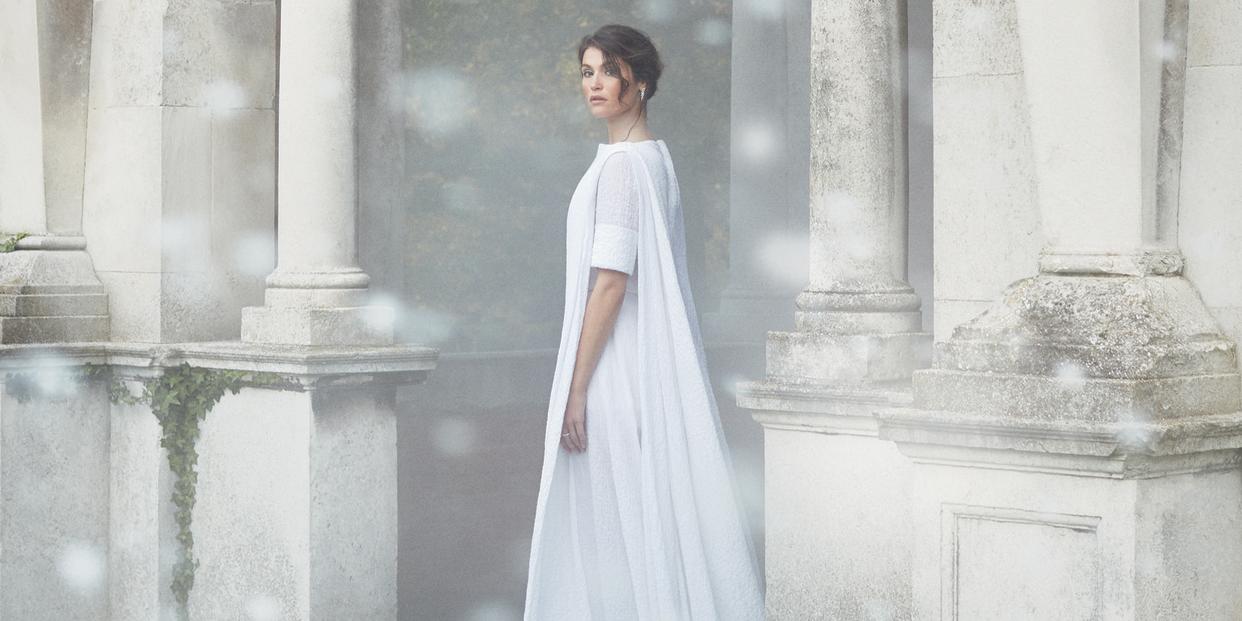
Gemma Arterton has just returned from finding God in Nepal. "I’ve been learning all about Christianity," she tells me cheerfully, when we meet for coffee in the cosy Drawing Room of London's Soho Hotel. Arterton is dressed casually in jeans, a soft black woollen jumper and a pair of chunky crocodile-effect boots, her skin so impossibly luminous that you wouldn't for a moment image she has recently stepped off a long-haul flight from the Himalayas.
If it sounds as though she has gone all Eat, Pray, Love on us, that impression is swiftly dispelled. Arterton’s trip to Jomsom, a spectacularly scenic village in Nepal’s Mustang District, was to film Black Narcissus, a BBC TV adaptation of Rumer Godden’s 1939 novel about a group of Anglican nuns sent to the mountains to open a convent, and her interest in religion is purely academic. "I’ve been reading this amazing book about becoming a nun – you have to kind of shut yourself down and then start again in God’s vision," she says. "My character, Sister Clodagh, has managed to close off her entire personality, and then when she gets to Nepal, the sheer beauty of the place opens her up again, and she unravels."
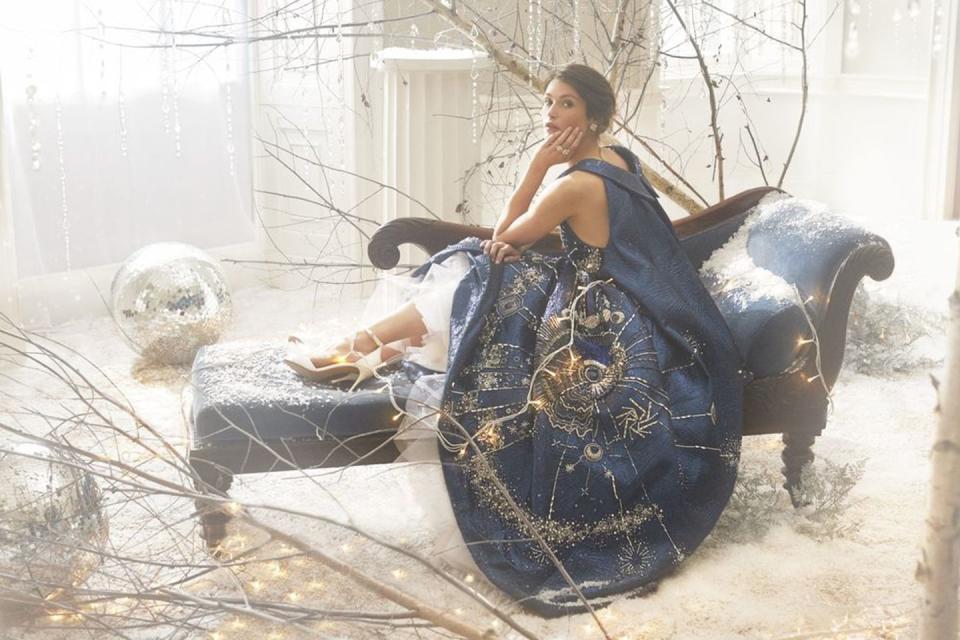
Brought up in a down-to-earth, straight-talking family in Kent, Arterton herself has had no such crises of faith to contend with, though she acknowledges having some kind of ‘higher beliefs’. "I don’t have a religion, but I’m into spirituality," she says. "I definitely like the idea there’s something else, and who knows what that is? I think I’d feel saddened to think this is it." Perhaps it’s no surprise, then, that her forthcoming projects deal with the tension between reality and something just beyond it. While Black Narcissus shows a woman falling apart in the face of her own spiritual doubt, Arterton’s newest film, the beautifully shot World War II drama Summerland, tells a rather more hopeful story of a reclusive writer, Alice, who becomes progressively more open-minded – and open-hearted – as the narrative progresses. "I do tend to get those parts now – the really cranky people who soften," reflects Arterton.
No one could ever have called Arterton ‘cranky’, but she does seem noticeably calmer – more sure of herself, perhaps – than when I last met her, for Bazaar’s International Women’s Day panel discussion on the future of film in March. At that time, she seemed almost overcome by frustration in the face of the entrenched inequalities she had witnessed in her chosen industry. Today, she is no less focused on fighting for change, yet her attitude is one of quiet determination rather than righteous indignation. On the matter of equal pay, for instance, she no longer has any hesitation about simply asking for the sun she deserves.
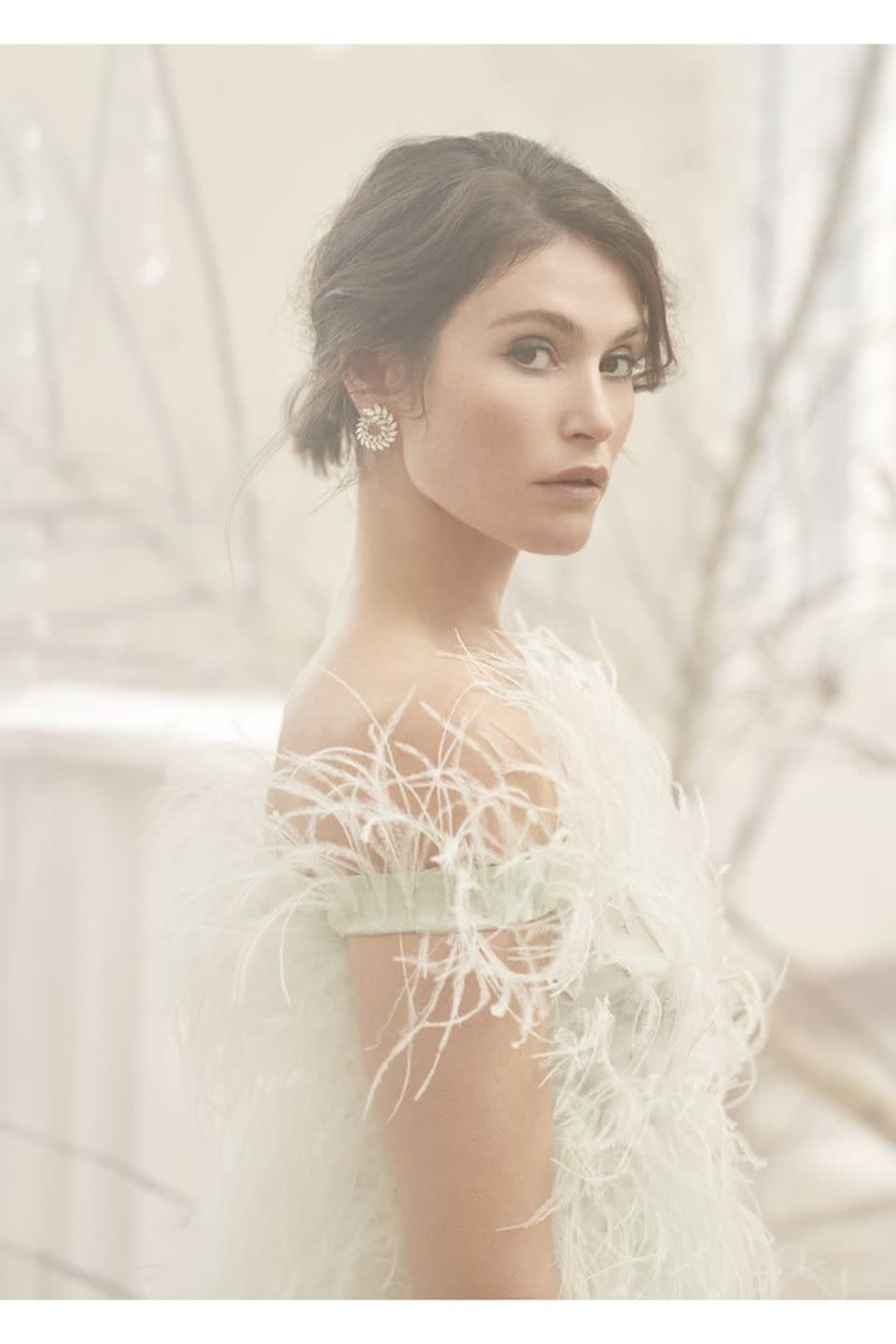
"Back in the day, I wasn’t as vocal about how I felt, or instead of vocalising the feeling, I’d internalise it and it would come out as outbursts. Now, I’ll say something then and there," she tells me. "I think I’m in a different place – I’m not just the young girl turning up. People know if they’re employing me that I’m going to go in there and ask."
Where has this new-found clarity and confidence come from? In part, it may have something to do with the peace she has found in her personal life: having gone through a divorce in 2015 (from the fashion designer Stefano Catelli), Arterton is now in a committed relationship with the Irish actor Rory Keenan, who has starred in film and television projects such as War & Peace, Peaky Blinders and The Guard, as well as performing regularly on the London stage. "He’s amazing because he really believes in me," she says of Keenan, who is rumoured to have become her husband earlier this year. More importantly, however, she has the optimism and certainty of a campaigner whois seeing the hard-won fruits of her labour. "I think the film industry has definitely changed for the better – it’s generally very supportive," she says. "I’ve always said, the only reason women are pitted against each other is because they have fewer opportunities, so they feel threatened. There’s more opportunity today, and in my experience, when there are lots of women together in a crew or cast, it’s great."
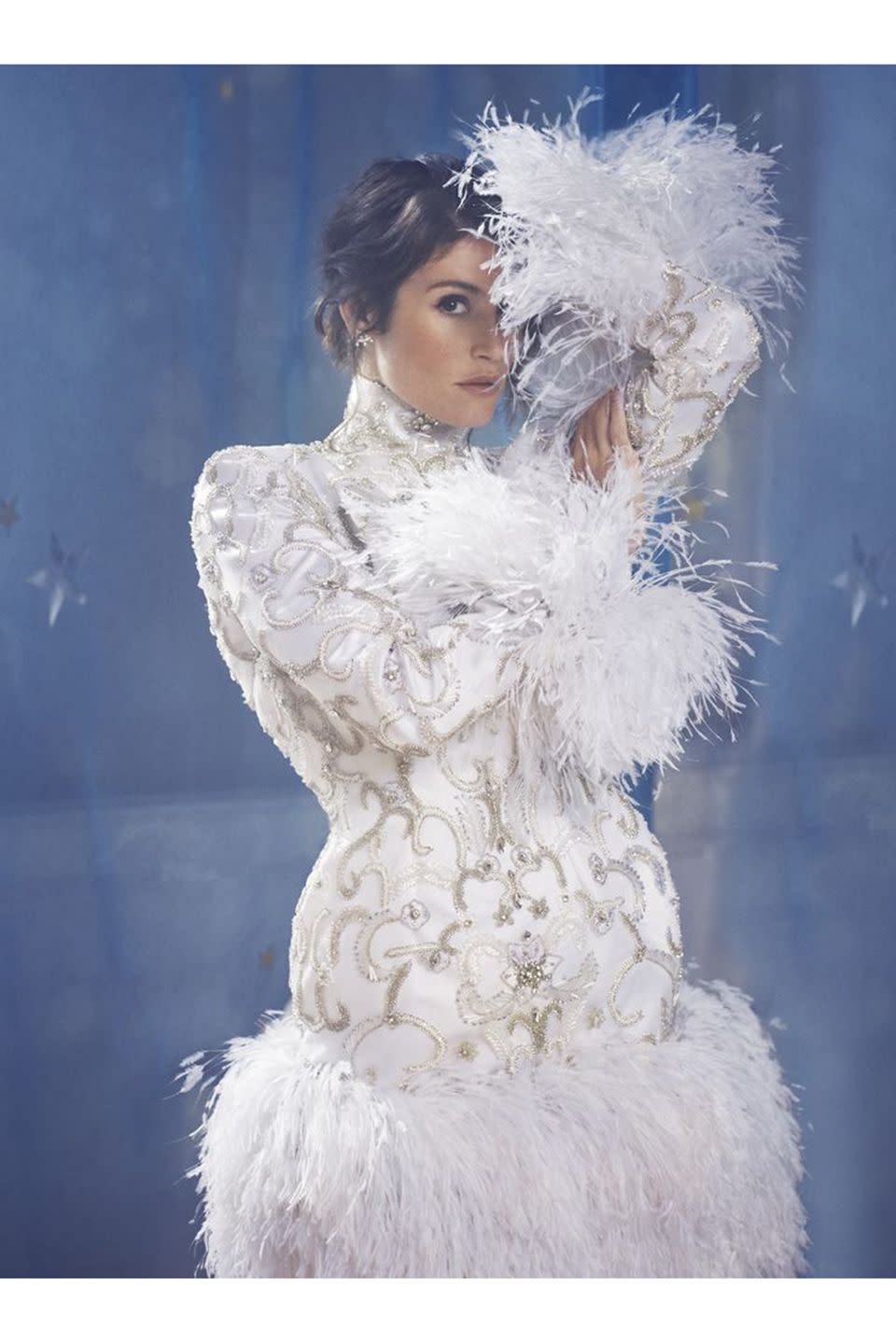
A case in point is Summerland, written and directed by Arterton’s close friend Jessica Swale (with whom she had previously worked on the West End production of Nell Gywnn), and made with the help of an array of talented women. "We had an all-female camera crew, which is really important because that part of the industry is usually very male-dominated," says Arterton. "We even had a female spark [electrician]; on other film sets, the lighting department is notoriously all men. They have their boys’ club – the geezers. Here, we’d all mix together and there was an easy, inclusive environment."
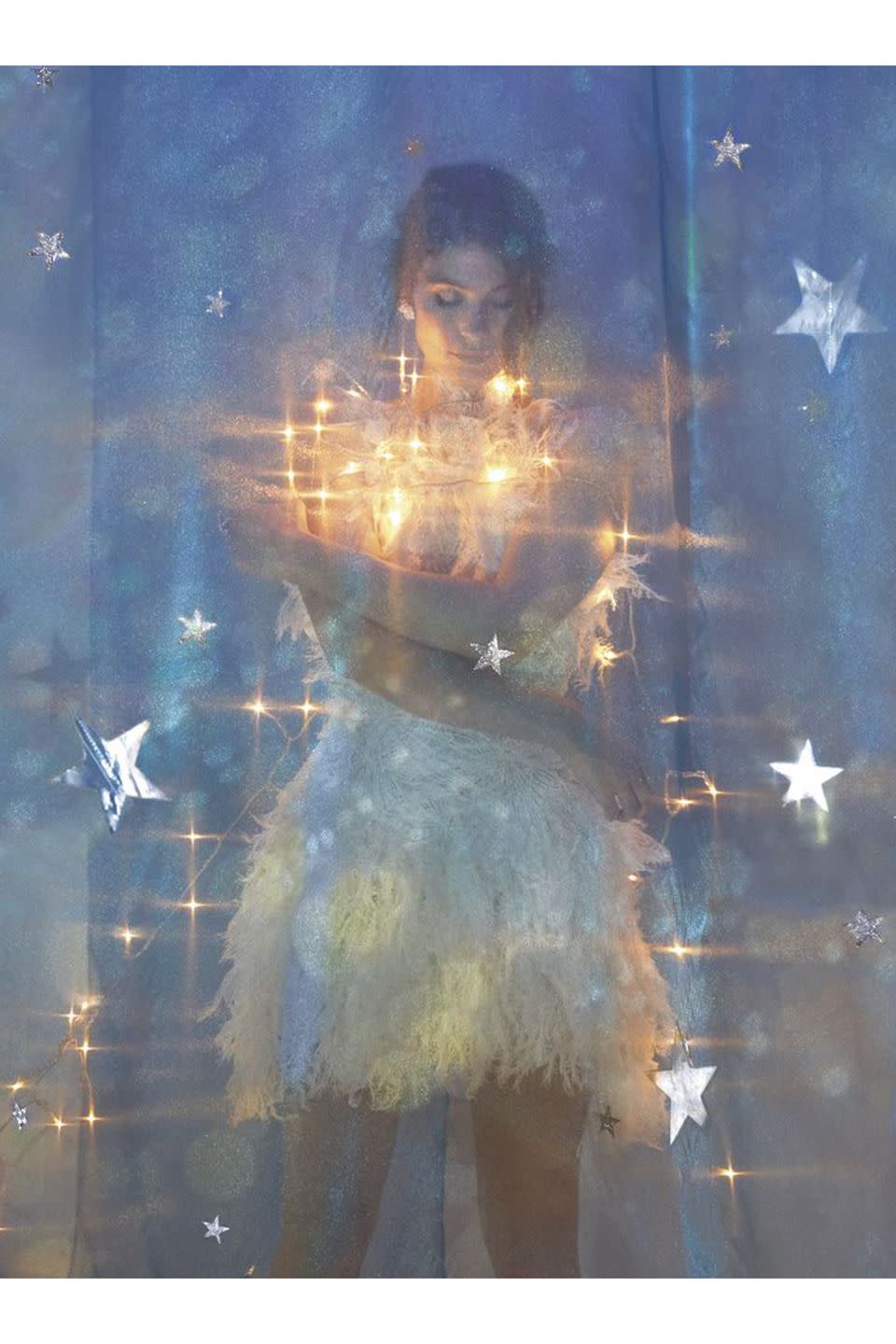
It’s no coincidence that Arterton should be part of such a progressive team; she herself helped to build it, in her capacity as the founder and owner of Rebel Park Productions, which focuses on getting more women involved in every aspect of film-making. While she is optimistic about the advances that have been made in terms of creating more diverse crews, it remains an uphill struggle to secure financial backing for female-led productions. "It was a long slog to get Summerland made," she admits. "For women directors, I still feel it’s difficult to get the budgets they want, whereas men would get the money even if it was their first film."
As part of her work with the Time’s Up movement, for which Arterton has been a passionate advocate since its inception, she is pushing for the introduction of unconscious-bias workshops for those who hold the purse-strings. "I’m trying to change things, but it’s frustrating because at Rebel Park we aren’t the people putting the money forward," she says. She constantly encounters resistance to her efforts to cast lesser-known actors, who are seen as a financial risk.‘If you put so-and-so from Game of Thrones in a project, rather than someone unknown, you have a guarantee that people are going to see it. That’s really sad, because there’s amazing talent out there."
Of course, Arterton herself is now a box-office draw, but it seems she has not entirely come to terms with her A-list status. "There are times when I still think it’s all going to end next year," she admits; even now, she is wary of turning down a job. "It can be hard to say no to things, but I’m trying to be really strict with myself." When she is struggling with a decision about whether or not to take a role, she goes to her mother, who she says is the ‘most honest sounding-board’ she has. "My mum always tells me I have to do myself more justice – she’s like, 'Why did you do that one? That didn’t do you any favours!'"
Arterton’s missteps, though, are rare. From her passionate performance as Vita Sackville-West in Chanya Button’s ambitious drama Vita & Virginia to a courageous turn as an unhappy house-wife in The Escape, a film in which the dialogue was almost entirely improvised, she has consistently received acclaim for her work. All the same, she hates
reading her own reviews. "I’m far too sensitive," she says ruefully. "When they come out, I have to ask people not to talk about them, even if they’re good. One of the worst ever press nights I had at the theatre was after I’d looked at the reviews – some were good but others were awful, and then I had to go and do the show for another three months. It took a lot of strength to manage myself down from that. I obviously know why we have critics, but it really is something I struggle with. People work so hard – they put their heart and soul into a piece of work – and then there’s someone taking it down in a few words. That’s tough."
Though critical of her own performances when she watches them back – "I’m so hard on myself, it’s getting to a point where I think I just shouldn’t see the end result" – Arterton does acknowledge some moments of real pride. "The ultimate goal when you’re an actor is that you don’t feel like yourself any more – you’re someone else. I had moments of that in The Escape, and again in some of the work we’re doing now on Black Narcissus. But it’s rare for that to happen."
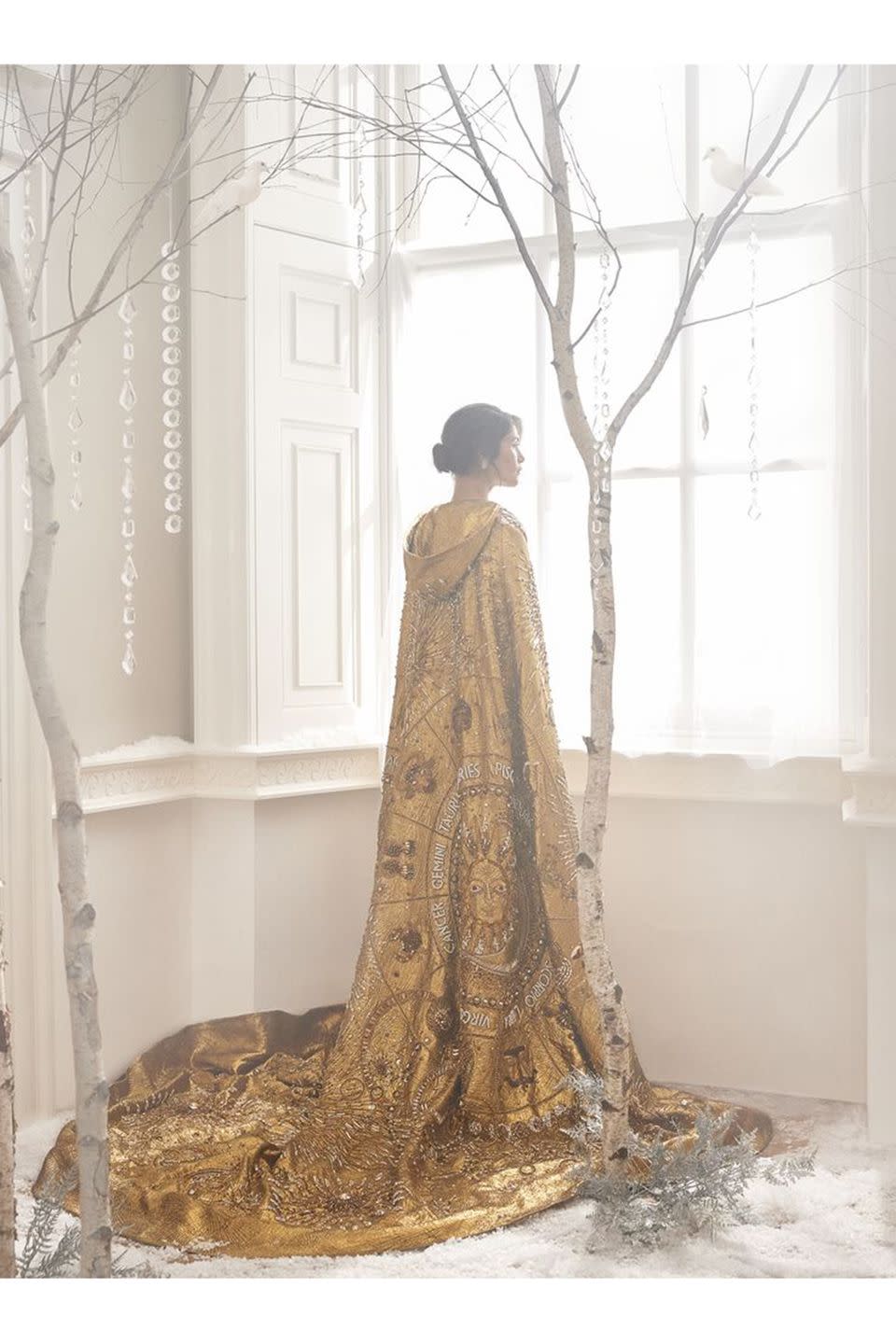
It’s not all high art and serious drama, however. Arterton’s role in the upcoming action-comedy film The King’s Man (the third instalment of the popular Kingsman series) will see her join Ralph Fiennes, Matthew Goode and Rhys Ifans for a lively historical romp in which her character, Polly – ‘the brainiest person in the room’– leads the charge in saving the world from a cabal of criminal masterminds. "I loved making it, and I wasn’t expecting to, because I’ve had bad experiences on those big things," she says. "But here, I just had a really good time."
In the film, Arterton and Alison Steadman play working-class characters in a predominantly aristocratic environment – a set-up she admits struck a chord. "It’s such a taboo to talk about, but I still feel very working-class," she says. "Of course, I’m not any more – I’ve moved up to London and I have nice stuff – but I am in my soul." She leans towards me conspiratorially, a mischievous glint appearing in her eye. "I’ve met Prince Charles a few times and he’s really lovely, such a nice man. He came to see me in Nell Gywnn, which is interesting, because she’s a proper Cockney who became aristocracy. Then I saw him again and he said, “How is your accent coming on? Are you working on it?” I thought, “You think I’m so common!”" Arterton bursts into peals of laughter. "My Cockney accent’s practically gone now, and I do feel sad about that – a bit fake, maybe. When I’m around my family, they sound so different from me."

It was drama school that removed any traces of Arterton’s Gravesend background. "Before that, I didn’t care about what people thought of me – I ate what I wanted, spoke when I wanted. Then I got to the school and someone told me to try not talking because it would create more mystique. So I’d go up to the canteen and just sit there, eating my lunch in silence." She shakes her head at the memory. "I think it’s different now. In those days, if you had a regional accent, you’d probably only get cast as the funny part in a Shakespeare play – now you could play Rosalind in As You Like It with a northern accent. It’s changed a lot."

No wonder Arterton is so determined to champion more diverse talent. "I’m passionate about giving opportunities to new voices who are not necessarily from privileged backgrounds, because my industry is very much about who you know," she says. "I only got into drama school because there were a few scholarships; now you’ve got to be super-rich. You should be able to train wherever you want." She relishes being able to give young people a platform through her production company, especially those who are interested in roles behind the camera. As for her own career, while the idea of directing is certainly an ambition, she does not yet feel ready to go down that path. "It takes up so much of your life, and it’s all on your shoulders, so when I do direct, it’s got to be something I’m going to fight for – a story I believe in 100 per cent," she explains. "Those kinds of projects don’t come along very often."
Knowing Arterton, it won’t be long before the right one does find her – or, more likely, she’ll find it herself. Until then, there are countless more exciting roles to play (‘I do really love acting – I wouldn’t want to stop doing it, ever’), causes to defend (‘What will I do when there’s nothing left to fight for?’) and, most pressingly, an episode of The Great British Bake Off to watch at home, in the company of her partner and their one-year-old working cocker spaniel, Luca. "He’s just a bundle of joy – the most loving, sweet-natured, silly creature," she enthuses. "Rory and I call him our first-born son." A feminist who loves dogs and baking shows almost as passionately as she campaigns for women’s rights? That’s my kind of role model.
‘The King’s Man’ is in cinemas from February; ‘Summerland’ will be released later this year.
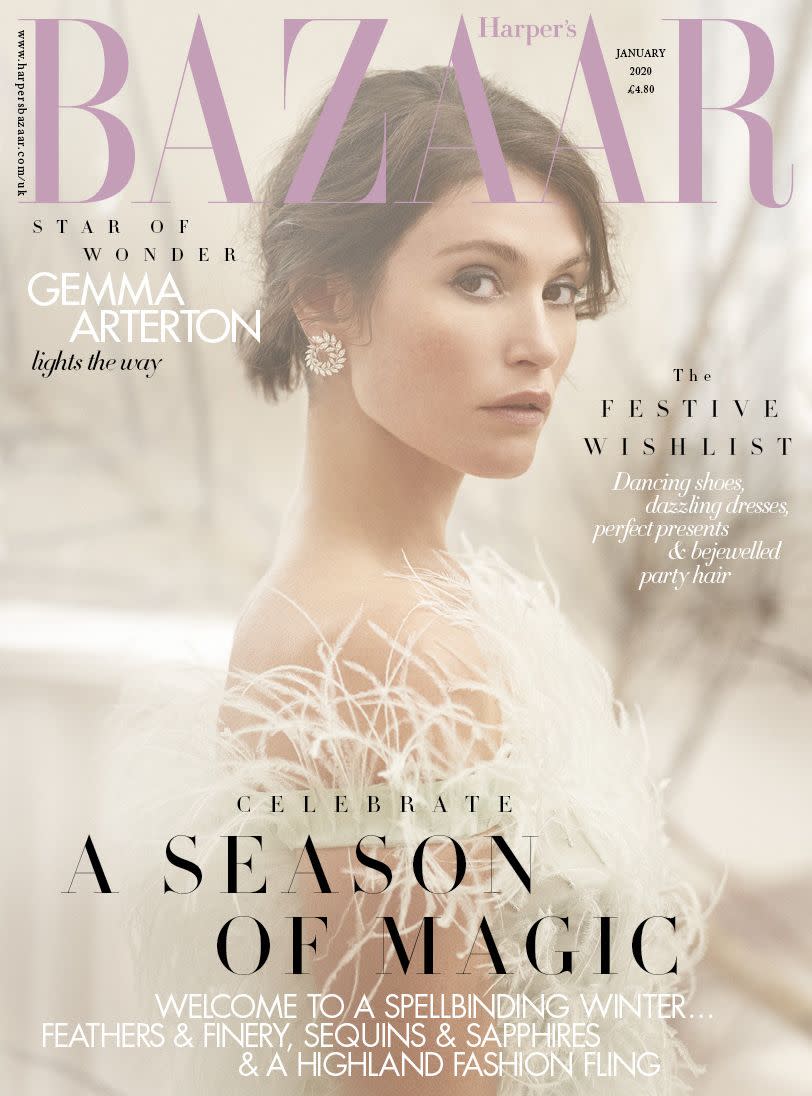
The January issue of Harper's Bazaar will be available on UK newsstands from 5 December.
Like this article? Sign up to our new newsletter to get more articles like this delivered straight to your inbox.
You Might Also Like


